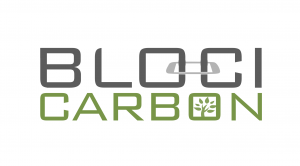Environmental and Sustainability Policy
Introduction
This policy is designed to guide and influence Bloci Ltd “strategic” Sustainable Development (SD) aims.
This Environmental and Sustainability policy creates a baseline against which future sustainable developments may be assessed, reviewed and measured. It will use the Plan, Do, Check and Act principles as outlined below to continually enhance and improve its environmental performance:
- Plan - Recognize an opportunity and plan a change.
- Do - Test the change. Implement what has been planned.
- Check – Review/Evaluate what has been done, analyse the results and identify what has been learned.
- Act - Take action based on what has been learned. If the change did not work, go through the cycle again with an amended plan. If successful, incorporate wider changes within the organisation and wider community. Implement the learning and plan new improvements, then begin the cycle again, so that it becomes an iterative process and is embedded in the organisation’s culture.
The document is produced on the basis that it will be used for two purposes, both in line with planning requirements and customer specifications:
1) To develop Bloci Ltd understanding of its environmental performance/obligations, and create a baseline.
2) To use the developed environmental and sustainability policy to articulate current thinking and help specify future developments
Environment and Sustainable Development Policy
This policy aims to include environmental and sustainability issues within our strategic decision making processes to help us achieve our aims and vision.
Bloci Ltd recognises that what we do results in some emissions to air, land and water, and the generation of waste. It is our overall aim to minimise our environmental impacts and to operate in an environmentally responsible manner. This policy summarises how we will achieve our aim:
Bloci Ltd will:
- Comply with, and exceed where practicable, in the premises we occupy, all applicable environmental legislation, regulations and codes of practice
- Integrate environment and sustainability considerations into our strategic and operational business decisions and ensure that activities are owned and acted upon.
- Ensure that all our staff, suppliers, stakeholders and customers are fully aware of our Environmental and Sustainability Policy.
- Minimise unnecessary office and transportation activities to reduce the impact on the environment leading to a reduction in CO2 emissions
- Review and continually strive to improve our environmental performance by setting sustainability objectives
- Commit to the minimal use of all “resources”, the prevention of pollution and the pursuit of best environmental and sustainability practices.
Our strategy to pursue our environment and sustainability policy
Bloci Ltd will deliver our policy by:
- Endeavouring to obtain our energy needs from renewable, or at least low impact or sustainable, resources and actively conserving natural resources through increased energy efficiency and better water management.
- Monitoring energy use frequently, especially in those areas those with high usage.
- Purchasing or using equipment or supplies that are renewable, have been, or can be recycled; where practical, are recyclable or refurbished and from sustainable sources.
- Informing staff, customers, suppliers and stakeholders, regularly and clearly, of our commitment to reducing environmental impact.
- Actively promoting recycling to all involved with us.
- Controlling and minimising all forms of waste.
- Promoting efficient use of materials and resources throughout our facilities including gas, oil, water, electricity and other resources, particularly those that are non-renewable.
- Including energy life-cycle costing within equipment purchasing procedures to ensure prudent procurement which supports our long term environmental aims.
- Including energy awareness, education, usage management, monitoring and information within all staff induction & subsequent training programmes.
- Working with others to identify best practice and usage efficiencies.
- Pursuing continuous improvement in how we use and conserve energy.
- Recycling, where feasible and minimising the amount going to landfill.
- Avoiding (unnecessary) use of hazardous materials and products, seeking substitutions when feasible, taking all reasonable steps to protect human and wildlife health and the environment when such materials must be used, stored and disposed of.
- Applying best practice guidelines specific for the different areas of the premises we use to minimise energy usage, but not at the expense of staff, customer, stakeholder or supplier comfort.
- Continually researching viable options for further energy usage reduction schemes within our premises or activities (e.g. renewable energy sources, ground/air source heating, solar/Photo Voltaic, Biomass etc.).
- Monitoring progress and reviewing our environmental performance and actions annually.
- Encourage and support our people to work from home.
UK Environmental/Sustainability legislation relevant to Bloci Ltd
This indicative list of legislation is to help Bloci Ltd understand its potential environmental and sustainable development obligations to ensure legal compliance. It is important to note that environmental breaches are increasingly subject to litigation. It is considered critically important for Bloci Ltd that it avoids any non-conformance issues that could create any “reputational damage” which may compromise existing and future relationships with customers, suppliers and stakeholders.
- Clean Air Act 1968
- Clean Air Act 1993
- Clean Neighbourhoods and Environment Act 2005
- Climate Change Act 2008
- Climate Change and Sustainable Energy Act 2006
- Energy Act 2010
- Environment Act 1995
- Environmental Protection Act 1990
- Flood and Water Management Act 2010
- Natural Environment and Rural Communities Act 2006
- Planning Act 2008
- Pollution Prevention and Control Act 1999
- Waste Minimisation Act 1998
- Water Act 2003
- BREEAM (Building Research Establishment Environmental Assessment Method) 1990
- Modern Slavery Act (2015)
- The Wellbeing of Future Generations Act (2016)
This Policy will become available, electronically, on request. If you wish to obtain a copy or would like to discuss our thinking or progress against our environmental objectives, please contact us.
Last updated – October, 2021


